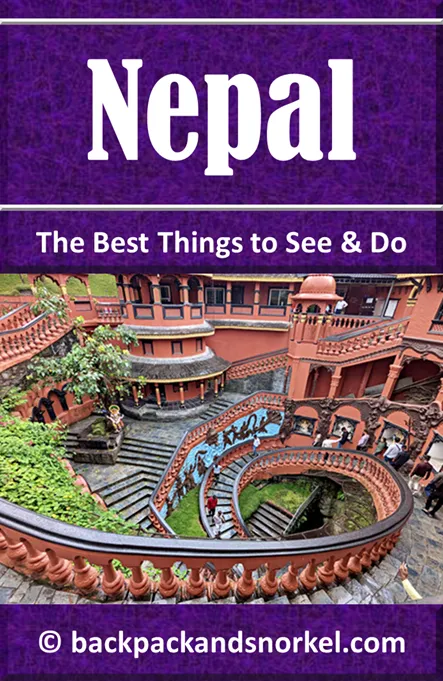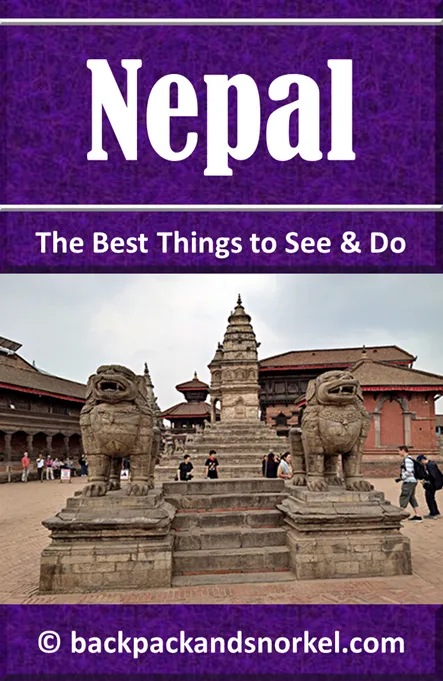Gopinath Krishna Temple: Your Guide to Bhaktapur's Charming Shrine - Nepal Purple Travel Guide
(map, reviews)
This is Premium Content! To access it, please download our
Backpack and Snorkel Purple Travel GuideGopinath Krishna Temple is often called Radhakrishna Temple, Radha Krishna Temple, or Dwarikanath.
Built in traditional Newar style, it has the most spectacular wood carvings along the doors, struts, and windows we have seen in Kathmandu!
Gopinath Krishna Temple is part of the group of four Char Dham temples, which are the local Bhaktapur Durbar Square version of the four Char Dham temples in India:
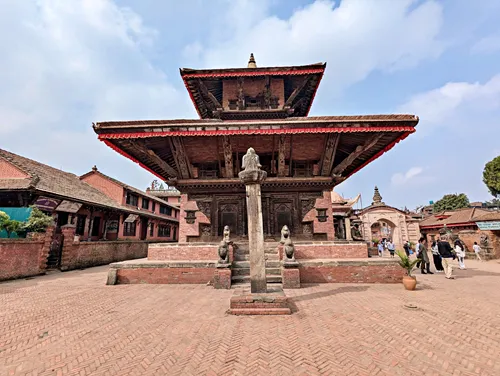
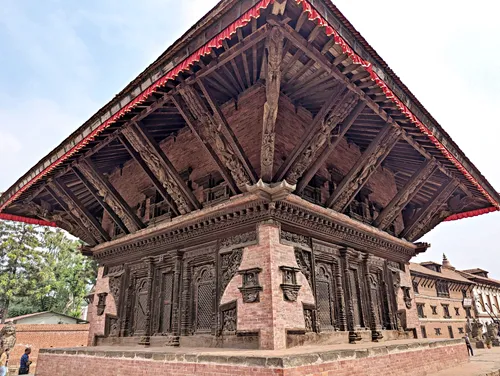
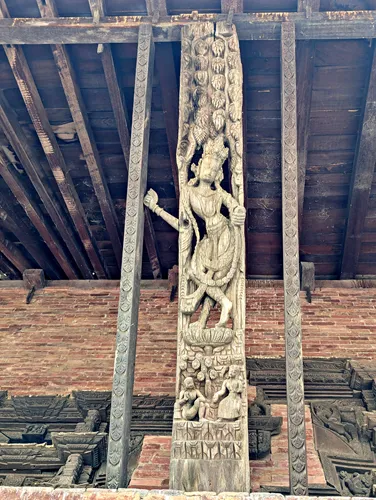
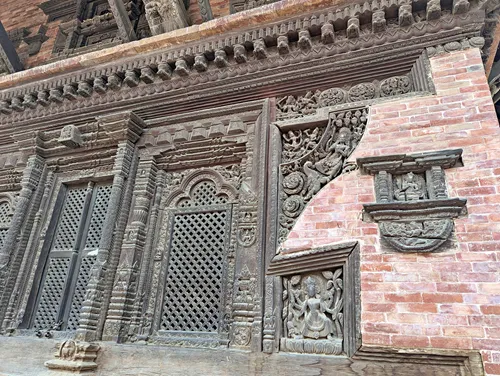
Here at Backpack and Snorkel Travel Guides, we typically promote self-guided walking tours.
But we realize that not everybody likes to walk by themselves in a foreign city. So, just in case that you rather go with ab guide: NO PROBLEM! Please see the Viator tours below.
free GuruWalk tours
paid Viator tours
Historic and Cultural Significance of Char Dham
The term ‘Char Dham’ literally means ‘four abodes’ or ‘four seats’ in Hindi and Sanskrit. The term refers to the four major pilgrimage sites in India. However, the concept has been adopted and localized in other regions, including the Kathmandu Valley.
In Bhaktapur Durbar Square, the Char Dham temples are a set of four smaller temples located at the western end of the square. These temples were commissioned by King Yaksha Malla in the 15th century with the specific intention of providing spiritual merit to those who were unable to undertake the arduous journey to the original Char Dham pilgrimage sites in India.
The Origin of the Name
The temple is named Gopinath, which means ‘Lord of the Gopis’, a title given to Lord Krishna in his youthful, pastoral form. In Hindu mythology, Krishna is celebrated for his playful and loving relationship with the Gopis (cowherd maidens) of Vrindavan. As Gopinath, he represents the joy of divine love and the blissful interaction between the soul and the divine.
This name emphasizes Krishna’s charming, flute-playing persona, revered by devotees as a symbol of spiritual devotion, beauty, and divine ecstasy.
Architecture and Religious Significance
Built in the traditional Newar pagoda style, the Gopinath Krishna Temple features the most spectacular carved wooden doors, struts and windows we have seen in Kathmandu, and a tiered roof structure typical of Bhaktapur’s heritage.
The temple enshrines a statue of Lord Krishna in his Gopinath form, and serves as a focal point for daily worship and seasonal festivals, particularly Krishna Janmashtami, which marks the deity’s birth.
The temple is not open to visitors.
Garuda Statue
To the east of the temple is a statue of Garuda. Garuda is depicted kneeling with folded hands (Anjali mudra) in a gesture of eternal devotion, facing the deity inside the temple.
As in other temples dedicated to Lord Vishnu or his incarnations like Krishna, there is sometimes a statue of Garuda (the eagle-like mount (vahana) of Vishnu) placed on a tall pillar directly in front of the main shrine. This architectural arrangement is traditional in Nepalese temple design, particularly in Vishnu- or Krishna-focused temples from the Malla period.
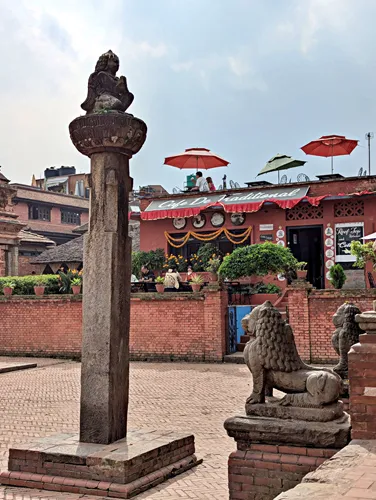
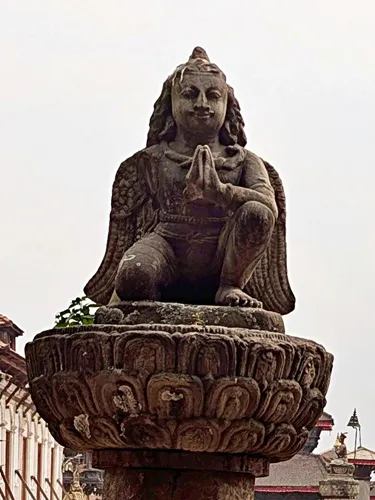
Back to your self-guided tour
Author: Rudy at Backpack and Snorkel
Bio: Owner of Backpack and Snorkel Travel Guides. We create in-depth guides to help you plan unforgettable vacations around the world.
Other popular Purple Travel Guides you may be interested in:
Like this Backpack and Snorkel Purple Travel Guide? Pin these for later:

